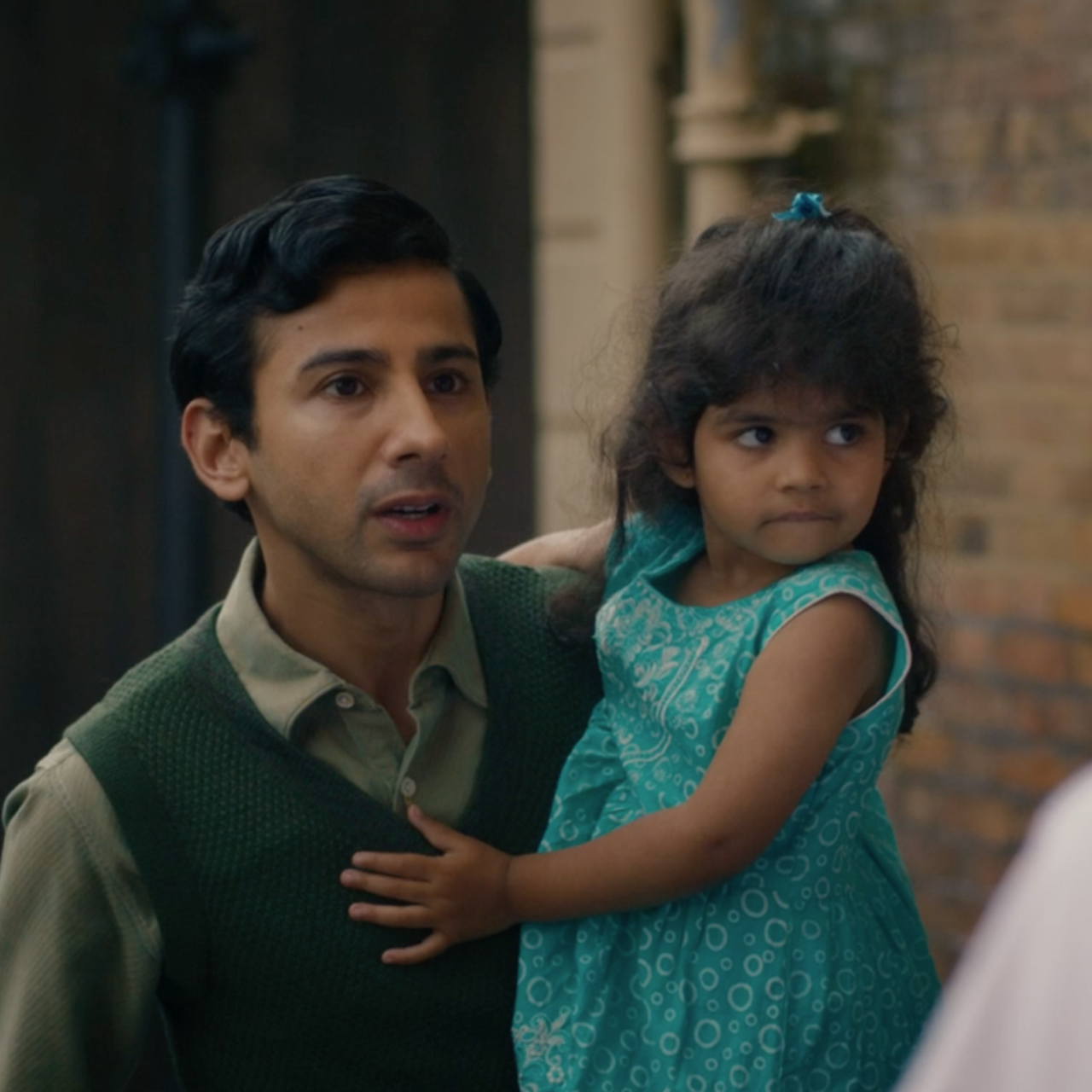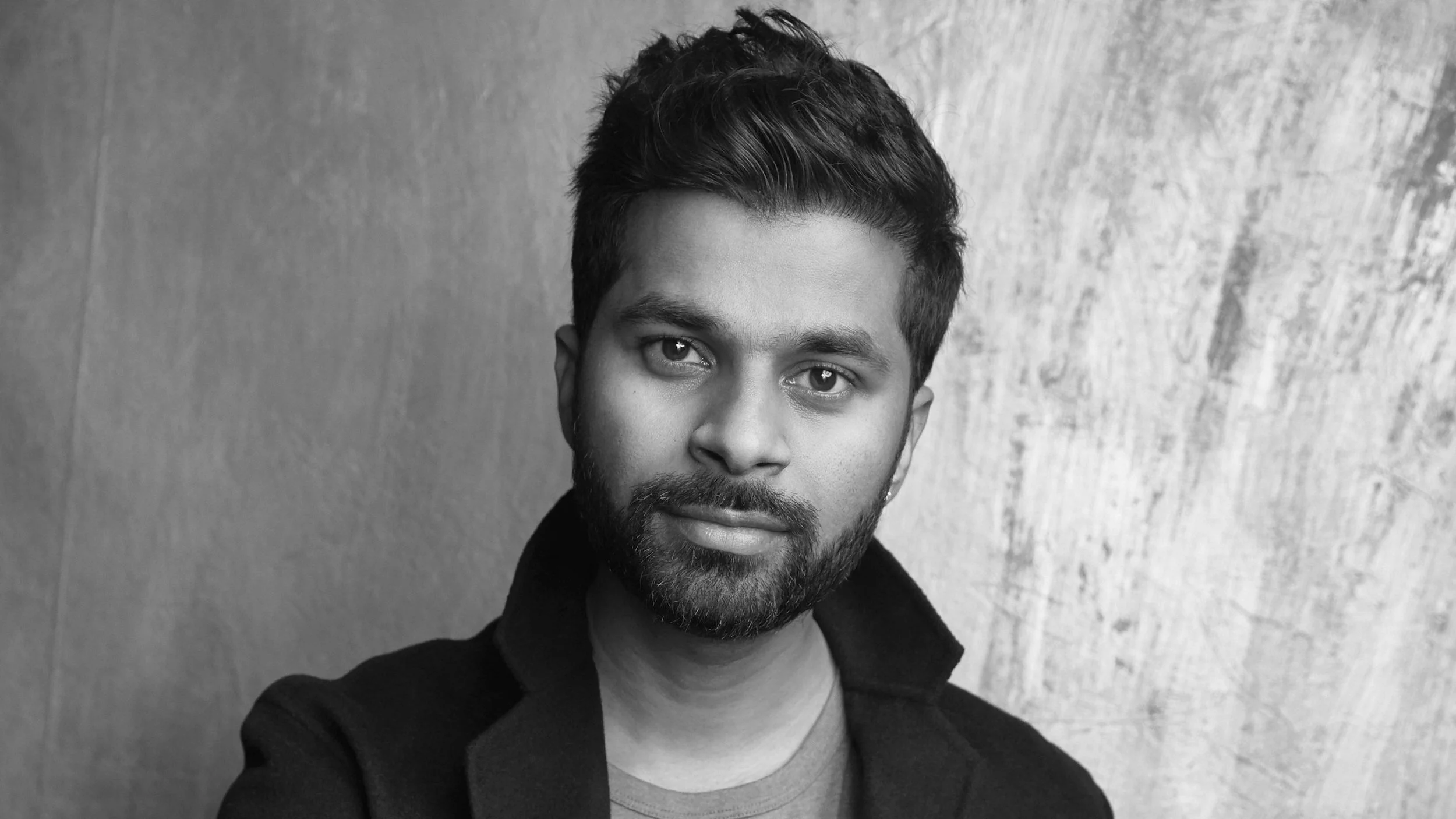Scholar Update: Manish Gandhi
Manish Gandhi is a 2013 Inlaks Scholar. He pursued his Diploma in Acting from the London Academy of Music and Dramatic Art (LAMDA). He works as an actor across theatre, film, and television. He made his debut at the Young Vic Theatre in "Now We Are Here," directed by Ian Rickson. He has appeared in theatre productions like Alan Bennett’s "Hallelujah" at Bridge Theatre and "Natives" at Southwark Playhouse. More recently, he has been involved in TV projects like BBC’s "Call the Midwife," "Silent Witness", and multi-award-winning Danish drama "Ride Upon the Storm".
He has also appeared in the films "Angrezi Medium" and Hansal Mehta’s
"Buckingham Murders," which premiered at the BFI London Film Festival last year and opened the Mumbai Film Festival this year. Currently, he is filming "Haven" for Prime Video and will soon be seen in ITV’s "DI Ray" Season 2.
We spoke with Manish about his craft, journey, future plans and more.
What sparked your interest in acting?
Manish Gandhi with Ella Purnell in rehearsal for the UK premiere of ‘Natives’ (Photo Credit Helen Murray)
Acting has always been a part of my life, even from a young age. Growing up, we didn’t have cable TV, but we had a VCR and a few movie cassettes, which I watched over and over. I became fascinated with storytelling through film, and that naturally sparked my interest in performing.
At the same time, I was deeply interested in religion. I spent a lot of time thinking about the nature of faith and how it fit into my life. I found myself constantly trying to make sense of different ideas, and in a way, that made me want to explore different perspectives and experiences—something acting allows you to do.
My journey into acting solidified during school theatre workshops. I had a wonderful English teacher who encouraged me to take it seriously, leading me to join the drama society at DAV College in Chandigarh. I always aimed to get into NSD, but when I didn’t, I pursued film school at FTII instead. FTII shaped me in many ways, and it was there that a visiting professor recommended I try drama school in London, which ultimately became a turning point for me.
How did studying at LAMDA impact you as an artiste and a person?
LAMDA had a profound impact on me, both as an actor and as a person. I’ve come to believe that there are two kinds of actors: those who rely on their own personality, essentially placing themselves in different scenarios, and those who seek to create characters that look, sound, and behave in ways entirely distinct from their own identity. Both approaches can result in equally authentic and compelling performances, but I resonate more with the latter.
Manish Gandhi in rehearsal for ‘The Climbers’ by Carmen Nasr (Photo Credit The Other Richard)
At FTII, I was introduced to method acting and had the chance to apply it in student films and other projects. However, I quickly realised that early in my career, I wouldn’t always have the luxury of deeply immersing myself in the world of the character. This drove me to explore alternative approaches to achieve depth in my work, which is why conservatoire-style training became so appealing to me.
At LAMDA, the focus was on helping me discover my own voice as an actor. The training was intense but never rigid; I was exposed to a wide range of texts and acting styles, but always encouraged to interpret them in my own way. LAMDA also reignited my passion for theatre and immersed me in London’s vibrant theatre scene, which was an invaluable experience in shaping my craft.
What brings you the most joy—films, theatre, or TV roles? Do you approach them differently?
Theatre holds a special place for me. There’s something about the long rehearsal process and the immediacy of live performance that really excites me. The collaborative nature of theatre—the way you bond with the cast and crew, the daily performances—it’s a rewarding grind. I also love the discipline it requires; you have to keep your voice and body in top shape for each show.
Manish Gandhi in ‘Call the Midwife’ (Neal Street Productions/ BBC Studios)
On the other hand, film and TV are very different experiences. With film, you often arrive on set, sometimes having just met your co-actors, and you’re expected to instantly create a believable relationship or moment. There’s a lot of pressure to get it right in a short amount of time, so preparation is crucial. For TV, the pace is even faster, and you need to be ready to adapt on the spot—learning lines quickly, dealing with scene changes, and maintaining continuity can be challenging, but it’s all part of the process.
Each medium requires a different skill set, but in the end, they’re all about storytelling, and that’s what I love most.
What plans do you have for the future? What themes would you like to explore?
I’ve been increasingly interested in producing my own work. These days, everyone talks about creating content, but what really excites me is how stories are told, not just what’s being said. I love it when a piece of work leaves room for interpretation, where different people can walk away with different feelings or meanings.
I’m drawn to exploring themes like race, identity, immigration, and the intersection of personal and political issues. These are important conversations, and I believe theatre provides a strong platform to address them. I’m open to tackling difficult or controversial subjects and look forward to continuing this exploration in my work.
Any advice for budding actors? What qualities do you feel are needed to make a career in this field?
First and foremost, believe in yourself. This industry is filled with rejection, and you have to be ready for that. You might hear “no” more often than “yes,” but don’t take it personally.
It’s important to know yourself. Acting requires a deep understanding of your emotions and how to access them. There aren’t clear markers of success in this field like in other professions, so you need to set your own goals and define what success means to you. Stay curious—about people, life, and the world. That curiosity will help you connect with others, including potential mentors and collaborators.
Lastly, make sure you have a plan for the financial side of things. This career has its ups and downs, and being prepared for the slower periods is important. Above all, remember that your job as an actor is to make the audience feel something, to connect with them in a way that makes them glad to be alive.








